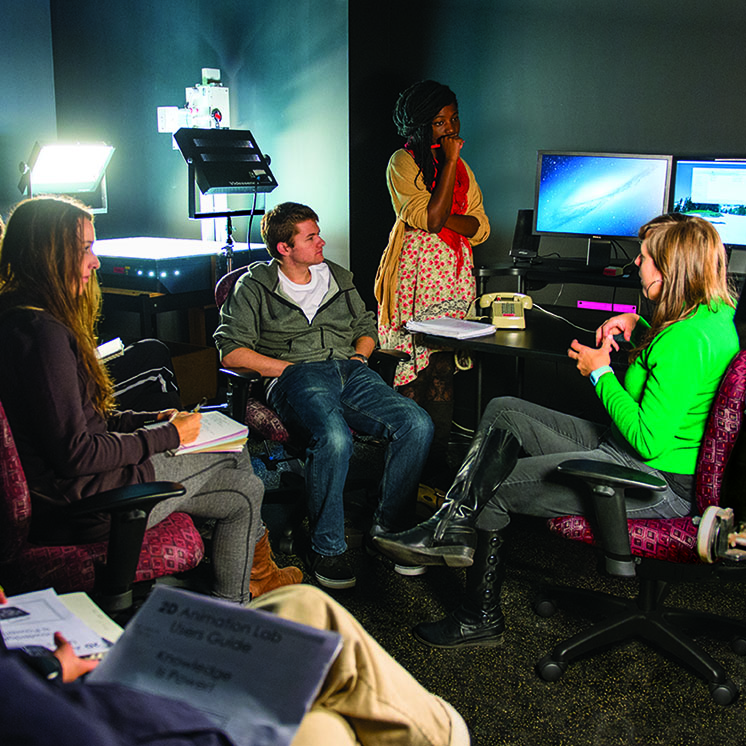Knowing the World through Thought, Sound, and Vision
REVISED
Fall 2015 and Winter 2016 quarters
Taught by
This first-year program focuses attention on the idea that each of us has a unique way of understanding the world because of the contexts to which we have been exposed. What is your context? How has it shaped the ways you interact with humans, institutions, and the natural world? Considering these questions opens the idea of having not just one, but several lenses through which we have built our understanding: we use all of our senses in addition to larger societal, linguistic, and biological structures to inform and guide us.
The languages we use and the social structures in which we live can be thought of as systems of representation—tools that living organisms can use to get a grip on reality. In the case of language, we might say that vocabulary is the material we have to work with, grammar ( syntax ) is the order in which we can combine those materials, and context is the place where language becomes meaningful or useful. Other systems of representation—in music, visual art, and science, for example—have similar structures.
How do you make sense of the world when your “lived vocabulary” includes rhythms and notes, shapes and lines, molecules and ecosystems, or color and light? How does your picture of the world change when your epistemology—your way of knowing—includes multiple systems of representation and is not limited to just words and syntax? In learning by doing, we will explore how artists use geometry and math, how musicians use physics, and how scientists engage the mystery of their environment. We will examine these systems of representation and develop new ones through creative play to explore the range of human experiences.
Weekly activities will include lectures, films, and seminars. There will also be field trips in each quarter, workshops, collaborative presentations, and guest lectures. Students are expected to focus on enhancing their college-level writing skills throughout the program; each quarter's major writing assignments will require students to master the process of revision. In fall quarter, students will be introduced to important skills in approaching this material through multiple modes; issues of perspective, critical analysis, and context are important factors in deepening our understanding. As we move into winter quarter, students will have more chances to develop individual and collaborative projects focusing on particular areas of interest.
Program Details
Fields of Study
Preparatory for studies or careers in
Location and Schedule
Campus location
Olympia
Schedule
Offered during: Day
Advertised schedule: First winter class meeting: Monday, January 4 at 9:30am (Sem II D1105)
Books
Online Learning
Required Fees
Revisions
| Date | Revision |
|---|---|
| September 21st, 2015 | Fees corrected ($80 in fall only, not $40 per quarter). |
| June 2nd, 2015 | Fees have been reduced (from $60 to $40). |
 my.evergreen.edu
my.evergreen.edu




 Fall
Fall  Winter
Winter